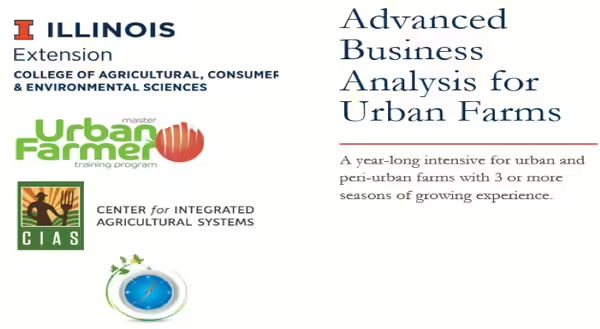
Living on the edge. Hustling. Working dawn to dusk, sunup to sundown, or 24-7. Nearly every farmer uses these words to describe their life. This endless work is not surprising given that farmers must be experts in growing crops, post-harvest handling, food safety, staff management, marketing, and selling plus have skills in tractor and small engine repair, construction, basic plumbing, and electricity. Despite the hard work, many farmers straddle precariously on the edge of profitability, struggling to pay themselves and save for retirement. Many small farmers “solve” this problem by taking an off-farm job that pays health and retirement benefits so that they can continue to farm. In fact, no matter farm size, most farms have a source off-farm income[i].
In our culture, we believe that hard work is rewarded. If we are not rewarded, then all we need to do is work harder. Clearly most farmers work hard, yet most farmers are not rewarded with a return on their investment. All this effort and lack of profitability leads to stress and worry. Bankruptcy looms. Retirement is a dream. Our quality of life suffers. Relationships fall apart. And some business, like mine, dissolve.
In the mid-1990s, I had an organic vegetable farm. There I quickly learned to grow beautiful organic vegetables but struggled to earn a living wage. In the off-season, I worked as a substitute teacher and worked year-round in a restaurant. Just before I called it quits my plan was to take on more off-farm work as a ski instructor. I experimented with selling cut flowers because no one ever complained about the price. I sketched out plans to build a certified kitchen, so I could produce a value-added product. I explored selling in multiple sales outlets- farmers’ markets, restaurants, wholesale. Yet working harder only led to more work and more stress and more fights with my business-partner-boyfriend. It was time to make changes or give up. We decided to split.
This is not a new story, nor is it unique. If you’ve been working around farming for any time you know someone with a similar story. It could be you. Part of my work as Cook County Extension Educator, Local Food Systems and Small Farms, is to provide resources and education directly to farmers in order to avoid business pitfalls— in other words help you to find that stitch that will save you nine.
Recently, a farmer told me at least four ways they could develop their business and was blaming themselves for being unable to decide which direction to take. Farmers— it not you. Nor is it your lack of business acumen or because you are indecisive. It’s about being confident in having enough information to make a good decision. One of the first things that slipped when I was farming was my record keeping. How many hours did I spend weeding carrots or mulching tomatoes? Sometimes I had no idea. My sales records were usually spot on, but often I neglected to record how much I did not sell as aftermarket I had to rush off to wait tables. This oversight wasn’t because I was lazy. I was lacking a good system and a tool to help me stay organized. I was so involved in the present moment of setting up the physical farming system or managing the current crisis (like the time the well pump broke during the wash/pack process) that record keeping slipped to the bottom of the chore pile—at times forgotten, at others ignored. This lack of rigor lead to decisions based primarily on instinct rather than data.
Since leaving farming, I’ve continued to value “learning by doing” but I’ve also learned the importance of investing time in intentionally and systematically collecting and using information before acting. It requires patience, discipline, and systems. At times, I appear to move slowly, but when it comes time to choose a direction, the path is clear. Instinct is only used to break a tie or begin an investigation. While farm profitability is just one measure of farm success, without it, critical areas such as farmer work/life balance, physical health, ability to build community, and time and resources devoted to solving social problems will suffer.
To help experienced Cook County commercial and non-profit ventures analyze farm profitability, John Hendrickson, Center for Integrated Agricultural Systems, and I have created a season-long intensive on Advanced Business Analysis for Urban Farms. The program includes 2.5 days of in-person group training and 6 individual phone check-ins. The training utilizes, Veggie Compass, a free tool developed by the University of Wisconsin-Madison to help farmers actively manage for increased farm profits by helping them understand their cost of production by product and by market channel. This information enables farmers to make strategic decisions to adjust prices, reduce costs, shift market channel focus, reduce or drop unprofitable products, and expand production of their most profitable ventures. Farming is critical work that should be rewarded. This course will provide knowledge and tools to make informed time-saving decisions to guide you towards improved profitability.
To find out more or to register for Advanced Business Analysis for Urban Farms visit https://web.extension.illinois.edu/registration/?RegistrationID=21652